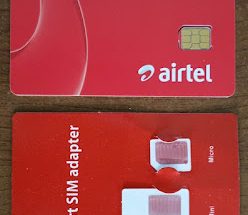National Payments Corporation of India (NPCI) has allowed banks and other lenders to take recurring payment mandates from consumers through Aadhaar, after receiving relevant clearances from the central government.
This opens up Aadhaar-based authentication and mandates from consumers which was stopped after the Supreme Court’s verdict prohibiting private enterprises from accessing the biometric database.
In a circular issued on May 26, the retail payments body informed all banks that eSign-based electronic mandates are set to be restarted from June 1 of this year. The NPCI had stopped the service through a circular issued on November 23, 2018. Moneycontrol has seen a copy of the circular.
After this, consumers who have to pay for their SIPs, monthly loan repayments and others can offer their banks an auto-debit facility by just giving consent through Aadhaar-based OTP. The alternate method to give this consent is through paper-based wet signature or through net banking credentials and debit card details.
Bankers familiar with the matter said this will be a booster shot for the financial inclusion and remote customer onboarding process since Aadhaar-based OTP is the easiest consent flow developed by the industry to date.
“Internet banking authentication-based eMandates does not cater to semi-urban and rural India since many consumers do not remember their netbanking credentials,” said Sanket Nayak, co-founder of DigiO, which offers eSign as a service to fintech companies.
As many as 34 banks are live on eMandates, including both netbanking and debit cards. ESign-based eNACH (Electronic National Automated Clearing House) had 120 banks live when it was stopped, Nayak said.
After the Supreme Court judgment halted all these methods, the NPCI had developed an alternate flow through net banking and debit cards to authenticate customers remotely. While they were effective, none of these had the reach of Aadhaar- and OTP-based consent. The challenge now is only for consumers who have not updated their latest mobile numbers with the UIDAI database. To receive the OTP, they need to update their mobile numbers.
“Those flows will continue; Aadhaar becomes one more flow through which the consent can be taken from consumers from now on,” said a senior banker…Read more>>
Source:-techiyogiz
Share:



